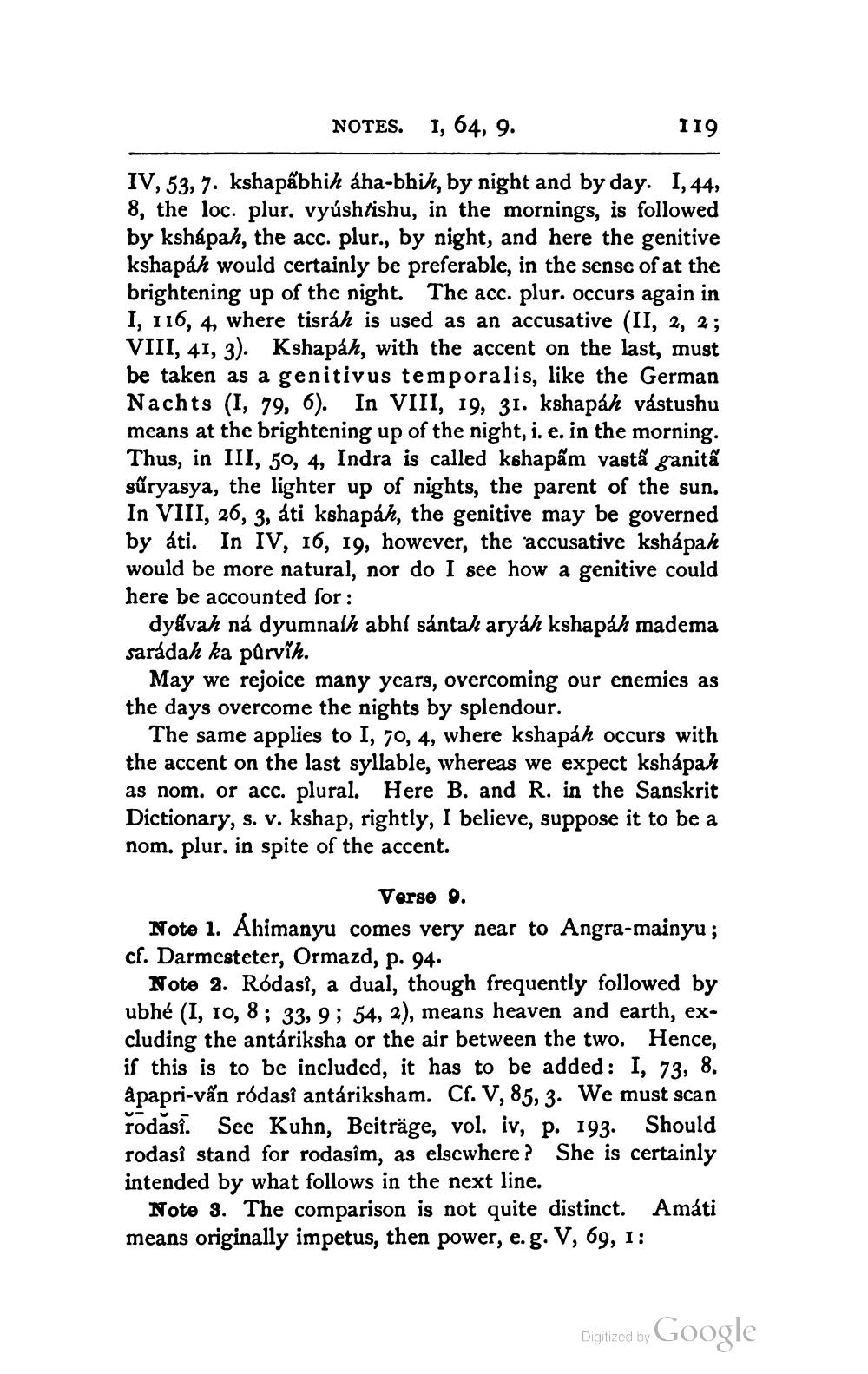________________
NOTES. 1, 64, 9.
119
IV, 53, 7. kshapâbhih áha-bhih, by night and by day. 1,44, 8, the loc. plur. vyúshtishu, in the mornings, is followed by kshápah, the acc. plur., by night, and here the genitive kshapáh would certainly be preferable, in the sense of at the brightening up of the night. The acc. plur. occurs again in I, 116, 4, where tisráh is used as an accusative (II, 2, 2; VIII, 41, 3). Kshapáh, with the accent on the last, must be taken as a genitivus temporalis, like the German Nachts (I, 79, 6). In VIII, 19, 31. kshapah vastushu means at the brightening up of the night, i. e. in the morning. Thus, in III, 50, 4, Indra is called kohapãm vastã ganitã sűryasya, the lighter up of nights, the parent of the sun. In VIII, 26, 3, áti kshapah, the genitive may be governed by ati. In IV, 16, 19, however, the accusative kshápah would be more natural, nor do I see how a genitive could here be accounted for :
dyåvah na dyumnash abhí sántah aryah kshapah madema sarádah ka pärvih.
May we rejoice many years, overcoming our enemies as the days overcome the nights by splendour.
The same applies to I, 70, 4, where kshapáh occurs with the accent on the last syllable, whereas we expect kshapak as nom. or acc. plural. Here B. and R. in the Sanskrit Dictionary, s. v. kshap, rightly, I believe, suppose it to be a nom. plur. in spite of the accent.
Verse 0. Note 1. Ahimanyu comes very near to Angra-mainyu; cf. Darmesteter, Ormazd, p. 94.
Note 2. Ródast, a dual, though frequently followed by ubhé (I, 10, 8; 33, 9; 54, 2), means heaven and earth, excluding the antariksha or the air between the two. Hence, if this is to be included, it has to be added: I, 73, 8. àpapri-vấn rodasi antariksham. Cf. V, 85, 3. We must scan rodasí. See Kuhn, Beiträge, vol. iv, p. 193. Should rodasî stand for rodasîm, as elsewhere? She is certainly intended by what follows in the next line.
Note 3. The comparison is not quite distinct. Amáti means originally impetus, then power, e.g. V, 69, 1:
Digitized by
Digized by Google




